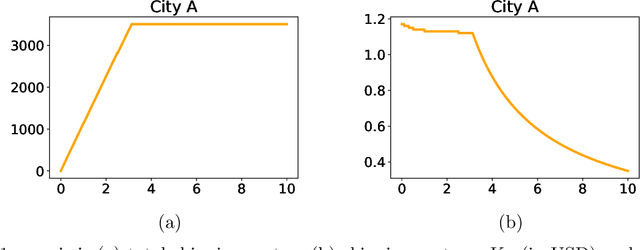Learning Algorithms for Regenerative Stopping Problems with Applications to Shipping Consolidation in Logistics
Paper and Code
May 05, 2021



We study regenerative stopping problems in which the system starts anew whenever the controller decides to stop and the long-term average cost is to be minimized. Traditional model-based solutions involve estimating the underlying process from data and computing strategies for the estimated model. In this paper, we compare such solutions to deep reinforcement learning and imitation learning which involve learning a neural network policy from simulations. We evaluate the different approaches on a real-world problem of shipping consolidation in logistics and demonstrate that deep learning can be effectively used to solve such problems.
 Add to Chrome
Add to Chrome Add to Firefox
Add to Firefox Add to Edge
Add to Edge